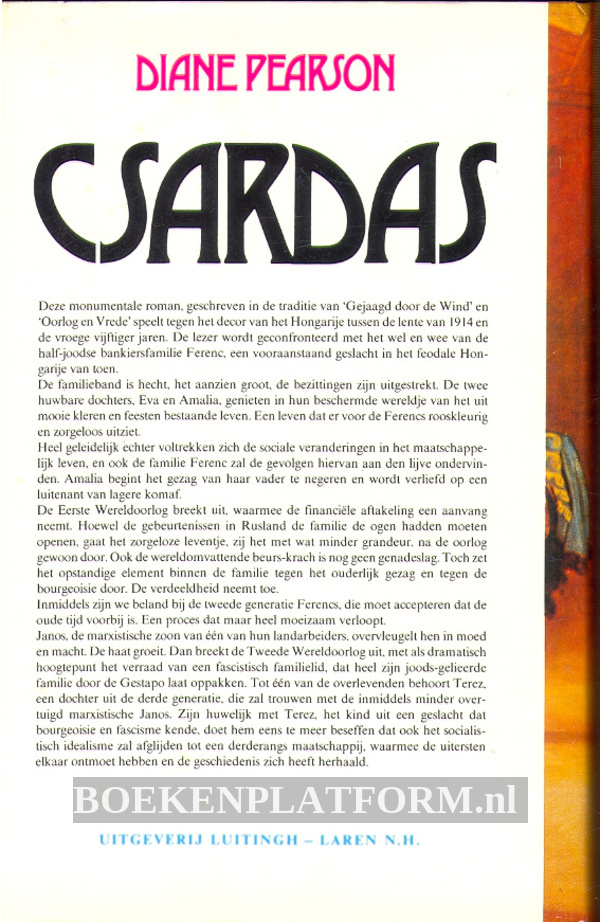


That said, I'm really glad I managed to locate a copy of this out-of-print gem and I really enjoyed learning about WWII from a different angle. Neither had the depth of character that Eva and Malie did in the beginning, which really disappointed me. It doesn't help that the main characters are either shunted to the side - or SPOILER: killed - meaning that the romance of the third act falls between a character who was previously secondary to the plot, Janos, and Terez. None of the characters here are purely good or purely evil, and that morally grey characterization really reminded me of THE BRONZE HORSEMAN, which is set around the same time, only in Russia.ĬSARDAS nearly does for Hungary what THE BRONZE HORSEMAN did for Russia, only the last part of the book feels a bit weak in comparison to the first two thirds. The first part of the book was my favorite, because I thought the way Malie and Eva's relationships with their families and their love interests was portrayed was exceptionally well done. After the war, when the Communist party forms in the void left by the Nazis, there is a sense of paranoia, hypocrisy, and futility. During WWII, there is a sense of fear, desperation, and violence. The first part of this book is set before WWII, in an idealistic golden age filled with prosperity and affluence. It chronicles the lives of two families of noble origin, the Ferencs and the Racs-Rassays. This is one of those times.ĬSARDAS, which according to the book jacket, is pronounced "char-dosh," is a novel of the Austro-Hungarian Empire written just prior to, during, and then immediately after WWII. Sometimes, you pick up a book of such substance that simply reviewing it doesn't quite do the damn thing justice.

After finishing the book, I felt both a sense of satisfaction (I got through 600 pages of weighty material! I did good!) but also a sense of dread. Usually, I have no trouble at all reviewing books I like but CSARDAS is a different kind of beast.


 0 kommentar(er)
0 kommentar(er)
